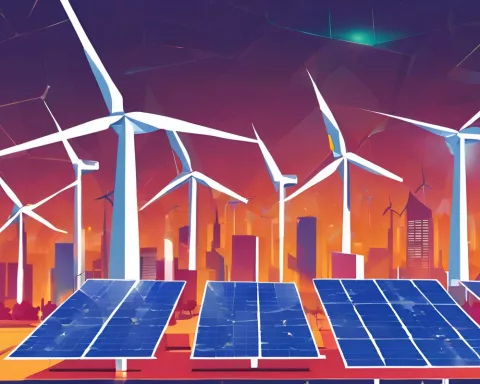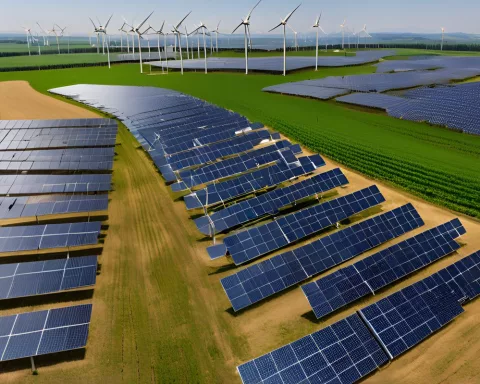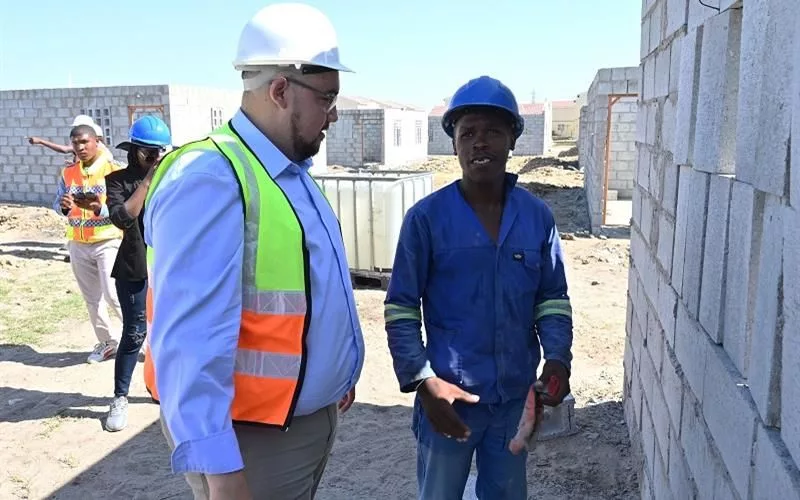Cape Town’s innovative energy initiatives have gained global recognition, including a recent visit by the World Bank’s Vice President for Eastern and Southern Africa to the Steenbras Hydro Pumped Storage Scheme. With plans to boost load-shedding protection and substantial infrastructure investment, the city is setting out on a ten-year journey to create the “City of Hope”. The city’s power supply diversification initiatives include LPUs curtailment, Embedded IPP renewable energy, and a Dispatchable IPP Programme, among others. The World Bank has extended invaluable support to Cape Town, providing pinpointed technical assistance to several departments, including Energy, Future Planning and Resilience, and Water and Sanitation.
Cape Town’s innovative and diverse energy initiatives have gained global recognition, including a recent visit by the World Bank’s Vice President for Eastern and Southern Africa to the Steenbras Hydro Pumped Storage Scheme. With plans to boost load-shedding protection and substantial infrastructure investment, the city is setting out on a ten-year journey to create the “City of Hope”. The city’s power supply diversification initiatives include LPUs curtailment, Embedded IPP renewable energy, and a Dispatchable IPP Programme, among others.
World Bank’s Affirmation of Cape Town’s Energy Strategy
In an unprecedented gesture reflecting the worldwide focus on sustainable energy solutions, Dr. Victoria Kwakwa, World Bank’s Vice President for Eastern and Southern Africa, recently embarked on a visit to the Steenbras Hydro Pumped Storage Scheme. This significant energy project is one of Cape Town’s most creative and innovative initiatives. This high-profile trip was a follow-up to a sequence of strategic dialogues between city representatives and the World Bank in Washington, indicating the strengthening of a partnership aiming at crafting a robust and resilient energy infrastructure.
Steenbras facility, a unique element of the city’s energy strategy, is a high-tech plant engineered to insulate the city against the repercussions of load shedding. To this point, the Steenbras initiative has proven its capacity by safeguarding city-provided consumers from up to two stages of Eskom’s load shedding. Nevertheless, the city’s ambitions don’t halt here. There are vast plans in the pipeline to augment the plant’s capacity to ward off up to four stages of load shedding by 2026. This ambitious vision warrants a substantial investment, paving the way for the partnership with the World Bank.
World Bank’s Role in Cape Town’s Energy Plan
The World Bank has extended invaluable support to Cape Town, providing pinpointed technical assistance to several departments, including Energy, Future Planning and Resilience, and Water and Sanitation. The objective is to ensure that Cape Town is thoroughly prepared to execute its daring plan of boosting load-shedding protection. This endeavor is a fragment of a more extensive infrastructure investment effort to create the ‘City of Hope’. The city is setting out on a R120 billion ten-year infrastructure portfolio journey, encompassing projects designed to escalate resilience and ensure energy and water security.
Councillor Beverley van Reenen, the City Mayoral Committee Member for Energy, delineated the city’s immediate plans to mitigate load shedding. These plans rest heavily on an assortment of energy sources, including the Steenbras Hydro Pumped Storage Scheme, 500MW of dispatchable energy, and a variety of demand management programs such as Power Heroes and load curtailment.
Diversification of Power Supply in Cape Town
A brief glance at the city’s power supply diversification initiatives showcases a well-rounded strategy. For instance, programs are already in progress for Large Power Users (LPUs) curtailment, Embedded IPP renewable energy, and a Dispatchable IPP Programme. Moreover, a fresh tender has been released for Independent Power Producers (IPP 3), envisaging an aggregated 500 MW of dispatchable and self-dispatchable power capacity.
In addition, the city has rolled out a novel program named Power Heroes. This voluntary campaign for households and small commercial consumers facilitates remote switching of power-intensive appliances such as geysers and pool pumps.
The city has also effectively executed the Private Small-Scale Embedded Generation (SSEG) mechanism, allowing residential and commercial customers to generate electricity for their consumption and earn credits for surplus production.
One unique facet of the city’s power diversification approach is ‘wheeling’. This is a City-enabled method that allows third parties to trade electricity using the existing grid infrastructure. This initiative aligns with the city’s broader objective of diversifying electricity suppliers to achieve a cost-effective solution.
Final Remarks
In summary, the World Bank’s visit to the Steenbras Hydro Pumped Storage Scheme symbolizes global acknowledgement of Cape Town’s inventive energy solutions. The strengthening bond between the city and the World Bank mirrors a mutual vision of sustainable infrastructure development and resilience. As the city marches forward with the implementation and expansion of its varied energy initiatives, Cape Town’s residents can anticipate enhanced energy security and a brighter, more sustainable future.
What is the Steenbras Hydro Pumped Storage Scheme?
The Steenbras Hydro Pumped Storage Scheme is a high-tech plant engineered to insulate Cape Town against the repercussions of load shedding. It is a significant energy project and one of Cape Town’s most creative and innovative initiatives. The project has proven its capacity by safeguarding city-provided consumers from up to two stages of Eskom’s load shedding.
What is the World Bank’s role in Cape Town’s energy plan?
The World Bank has provided invaluable support to Cape Town, providing pinpointed technical assistance to several departments, including Energy, Future Planning and Resilience, and Water and Sanitation. The objective is to ensure that Cape Town is thoroughly prepared to execute its daring plan of boosting load-shedding protection. This endeavor is a fragment of a more extensive infrastructure investment effort to create the ‘City of Hope’.
What are Cape Town’s power supply diversification initiatives?
Cape Town’s power supply diversification initiatives include LPUs curtailment, Embedded IPP renewable energy, and a Dispatchable IPP Programme, among others. In addition, the city has rolled out a novel program named Power Heroes. This voluntary campaign for households and small commercial consumers facilitates remote switching of power-intensive appliances such as geysers and pool pumps.
What is the city’s plan to mitigate load shedding?
The city’s immediate plans to mitigate load shedding rest heavily on an assortment of energy sources, including the Steenbras Hydro Pumped Storage Scheme, 500MW of dispatchable energy, and a variety of demand management programs such as Power Heroes and load curtailment.
What is ‘wheeling’ in Cape Town’s power supply diversification approach?
‘Wheeling’ is a City-enabled method that allows third parties to trade electricity using the existing grid infrastructure. This initiative aligns with the city’s broader objective of diversifying electricity suppliers to achieve a cost-effective solution.
What is the objective of Cape Town’s infrastructure investment effort?
The objective of Cape Town’s infrastructure investment effort is to create the ‘City of Hope.’ The city is setting out on a R120 billion ten-year infrastructure portfolio journey, encompassing projects designed to escalate resilience and ensure energy and water security.












